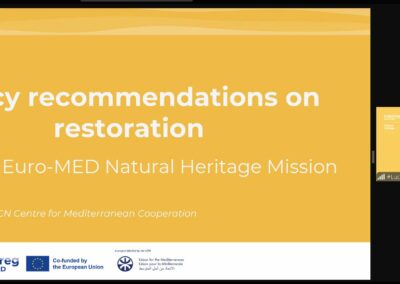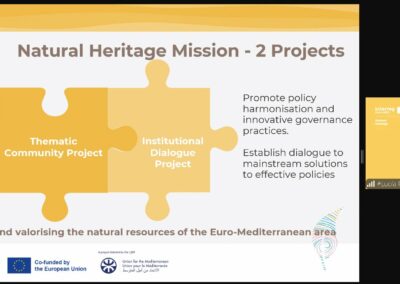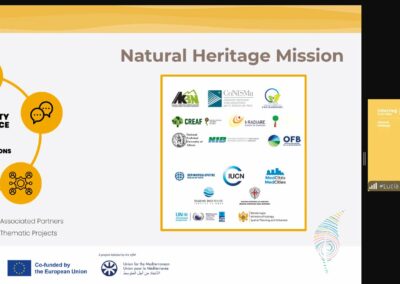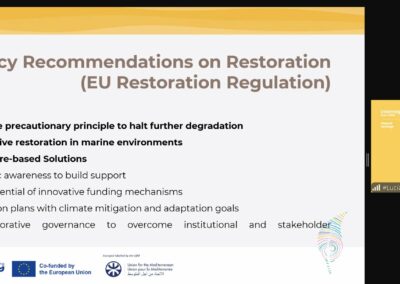A Collaborative Platform for Regional Environmental Governance
The UfM Working Group on Environment plays a critical role in advancing regional environmental policies, strengthening cooperation, and facilitating dialogue among North and South Mediterranean countries. The meeting addressed the progress made in implementing the 2030GreenerMed Agenda, a structured regional framework aimed at fostering a green, circular, and inclusive economy, reducing pollution, and restoring natural ecosystems. The session also highlighted the latest updates on COP outcomes, including the Technical and Scientific Cooperation Mechanism to support the Kunming-Montreal Global Biodiversity Framework, the mid-term review of the UfM Ministerial on Environment, and key environmental projects relevant to the region.
Advancing Policy on Restoration
Representing the Natural Heritage Mission, IUCN Med outlined its ongoing work and shared policy recommendations on ecosystem restoration in alignment with the EU Restoration Regulation and broader international and Mediterranean environmental objectives. Seven key priorities were highlighted:
- The Precautionary Principle: A call for proactive measures to halt further ecosystem degradation before restoration becomes necessary.
- Passive Restoration: Particularly in marine environments, where reducing stressors can allow ecosystems to regenerate naturally.
- Promoting Nature-based Solutions: Encouraging the adoption of restoration methods that align with biodiversity conservation and climate adaptation goals.
- Raising Public Awareness: Ensuring community engagement and public support for restoration efforts.
- Unlocking Innovative Funding Mechanisms: Encouraging investment in restoration projects through public-private partnerships and financial incentives.
- Aligning Restoration with Climate Goals: Ensuring that restoration projects complement climate mitigation and adaptation strategies.
- Fostering Collaborative Governance: Addressing institutional fragmentation by promoting inclusive decision-making processes involving multiple stakeholders.
Next Steps and Engagement Opportunities
To amplify the impact of these recommendations, the Natural Heritage Mission plans to:
- Disseminate findings at key international events, including UNOC, the IUCN World Conservation Congress, and COP24.
- Launch a social media communication campaign to raise awareness and mobilise stakeholders.
Provide a dedicated platform within the Natural Heritage Mission website for endorsing and supporting the recommendations.





